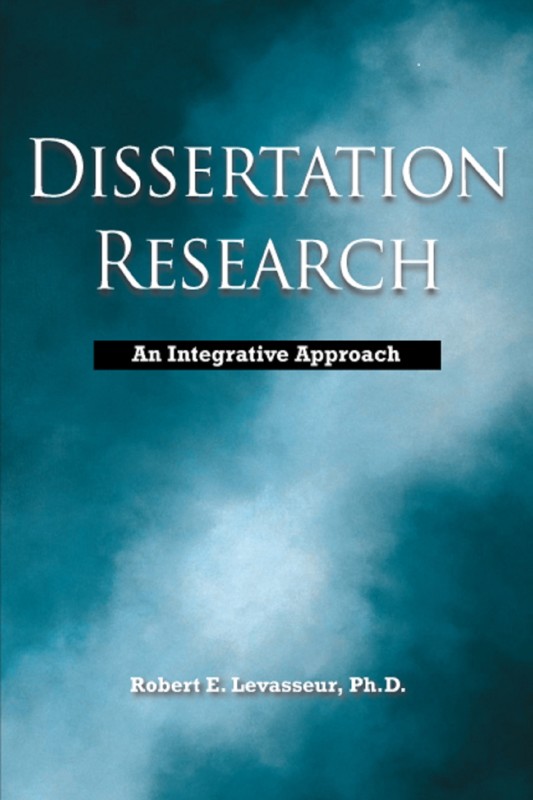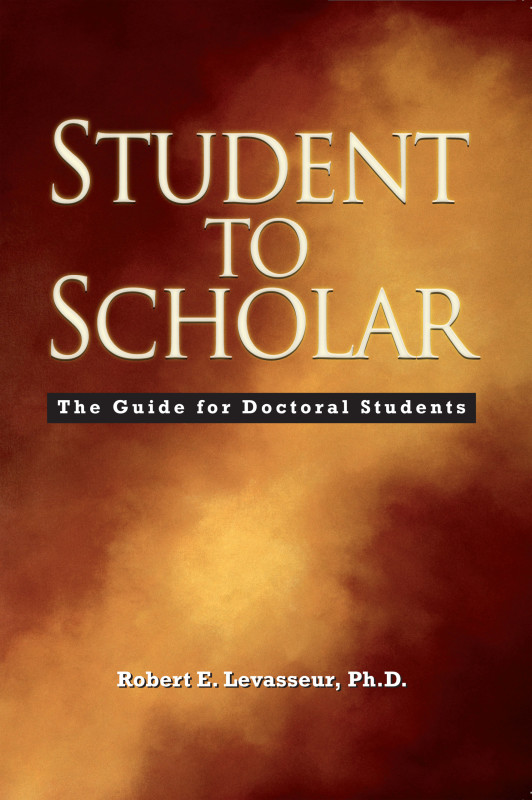The Doctoral Journey
A doctoral journey is the academic adventure of a lifetime.
If you find the right school and have good advisors, a doctoral journey can be a magical ride. If you are less fortunate, it can be an endurance test rivaling an ultramarathon. Either way, it will have its share of ups and downs. How you handle them will determine whether you succeed or fail in your quest.
The president of the university from which I earned my Ph.D. had some seemingly simplistic, but actually quite profound, advice for all new doctoral students in my first academic residency. He urged us to treat every setback in our journey, whether academic or personal, as a bump in the road. Otherwise, he cautioned, we might waste valuable energy and lose focus; or worse, turn an obstacle into a showstopper. As a result, whenever I faced a problem that threatened to derail my efforts, from an academic snafu to the death of a family member, I had something to hold on to that kept me focused on my task and got me through.
Lesson #1: Treat every setback as a bump in the road.
Only good students get the opportunity to earn a doctorate. But, being a good student does not mean that you are automatically a scholar. The transition from student to scholar is the primary task of a doctoral journey. It involves learning how to (a) read and critically interpret the original works of important theorists and researchers contained in the literature of your field, (b) design and conduct research projects of your own (such as the dissertation), and (c) write in a style and voice acceptable to other scholars. All of these things you must have the humility to realize you need to learn (regardless of your previous academic accomplishments), and the ability and determination to master at a high level (regardless of the difficulties associated with doing so), if you want to earn your doctorate.
Lesson #2: Your primary task as a doctoral student is to make the transition from student to scholar.
Lesson #3: A doctoral journey requires healthy doses of humility and hard work to achieve a high level of mastery of a field of study.
There are three interrelated parts to a doctoral journey; each of which has its special challenges.
In the beginning, you must learn (a) the content knowledge of your chosen field of study (typically through course work or writing major papers), (b) a new style of writing to enable you to communicate with other scholars (APA style is the most commonly used), and (c) how to apply higher-order critical researching, reading, thinking, and writing skills to the literature in your field.
For example, the critical thinking skills required at the masters and undergraduate levels of study typically consist of acquiring and comprehending knowledge and demonstrating the ability to apply this new knowledge to practical situations. While these skills are also necessary at the doctoral level, more important are the ability to analyze, synthesize, and evaluate the ideas contained in scholarly books, journal articles, and dissertations (i.e., the higher-order critical thinking skills).
As you progress, you refine your knowledge of and skill in using these higher-order skills and the elements of APA style (or its equivalent as specified by your university) by applying them to increasingly more demanding challenges, such as writing a variety of major (typically over 100 pages in length), evidence-based papers. In some doctoral programs, you complete this middle phase of your journey by passing comprehensive examinations that test your content knowledge of your field of study.
In the end, you demonstrate your mastery of the all of the knowledge, skills, and understanding you have acquired in your doctoral program by designing and successfully conducting a dissertation research project that advances the boundaries of knowledge, satisfies your dissertation committee and your university that you are competent to do original research in your field, and, hopefully, has a positive impact, however small, on society.
Lesson #4: In addition to learning the content knowledge of your field of study, you must also learn how to read and critically examine the literature in your field using higher-order critical thinking skills, how to design and conduct original research projects, and how to communicate your ideas to other scholars in writing using appropriate form and style.
Lesson #5: A doctoral journey is the academic adventure of a lifetime. Enjoy it!
To learn more about the doctoral journey, I recommend these two books, which focus on the essential transition form student to scholar every doctoral student must make (Student to Scholar) and on the all important final stage in the process (Dissertation Research).


